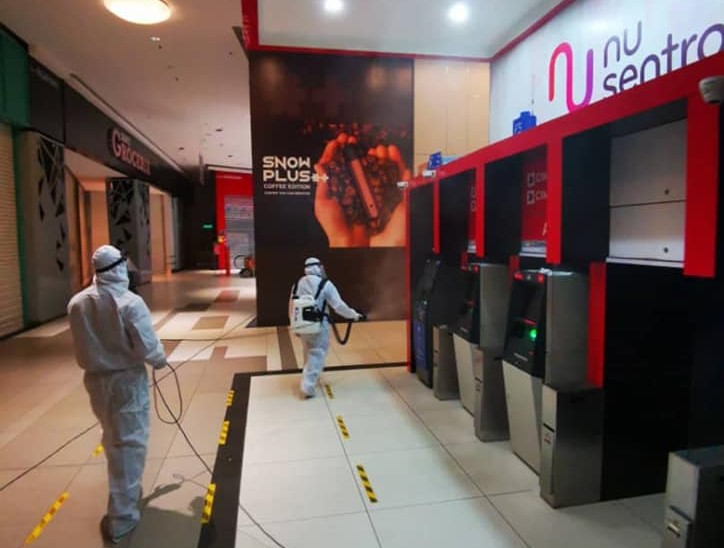KUALA LUMPUR, May 10 — Khairy Jamaluddin acknowledged today blind spots with the HIDE predictive Covid-19 analytics system that omits premises which do not enforce MySejahtera check-ins.
However, the science, technology and innovation minister stressed that this did not mean that shopping centres are not potential Covid-19 hotspots.
“There’s been a huge surge of activity in shopping malls in the run-up to Aidilfitri,” Khairy told a joint virtual press conference with Health Minister Dr Adham Baba today.
He was responding to CodeBlue’s question on whether the Hotspot Identification by Dynamic Engagement (HIDE) was biased against high-traffic malls and supermarkets due to their enforcement of MySejahtera check-ins.
According to a CodeBlue analysis based on Ministry of Health (MOH) data, factories only comprised 19.6 per cent of 8,866 Covid-19 cases from 340 clusters over the past month from April 9 to May 8. Shops, malls, and markets combined only contributed 0.8 per cent of these cluster-linked cases.
However, HIDE’s first list published last Saturday comprised most major shopping centres and supermarkets in the Klang Valley.
Khairy said that all the 151 locations listed on HIDE last Saturday were potential large hotspots and that the system did not list small ones. Khairy said previously that on May 3, HIDE had identified 1,660 potential Covid-19 hotspots nationwide.
“We decided not to list everything because that might create panic and alarm. We’re concentrating on large hotspots only.”
Khairy also responded to criticism on why HIDE omitted factories and offices, saying that HIDE’s overall list comprising both large and small potential hotspots involved different types of premises like offices and factories, not just retail.
He added that the National Security Council (NSC) will issue a statement on HIDE-related interventions after a meeting later today.
When Khairy first announced HIDE last May 4, he had said that the system was meant to enable preemptive measures by premise owners and patrons, but Senior Defence Minister Ismail Sabri Yaakob announced last Saturday an immediate three-day closure on all premises listed on HIDE.
The public transport hubs of LRT KLCC, LRT Masjid Jamek, and KL Sentral, which were listed on HIDE, were permitted to continue operations, except for retail outlets in those train stations that are still subject to closure.
Dr Adham said today that owners of premises listed on HIDE must enforce stricter gatekeeping at their entry points by prohibiting entry to individuals listed as “high risk” on the MySejahtera contact tracing app, besides controlling occupancy in their premises.
Periodic sanitation, especially on high-touch surfaces, in premises listed on HIDE is also required.
The health minister did not recommend immediate closures on premises listed on HIDE.
He added that district health offices would receive daily HIDE reports from the state Crisis Preparedness and Response Centre (CPRC). If positive cases are reported in a particular listed premise, the district health office will do investigations, contact tracing, isolate the positive case, quarantine close contacts, and undertake risk assessments on the premise to see the need for sanitation and disinfection.
“An evaluation will also be conducted on the need for temporary closure for prevention and control protocols, such as sanitation and disinfection by the premise owner,” said Dr Adham, adding that screening of workers at a listed premise may also be conducted, depending on the risk assessment.
He also said MySejahtera will send alerts to “casual contacts”, or people who visited premises listed on HIDE, to monitor their health status daily on the app’s health assessment tool. Those with symptoms are advised to visit the nearest health facility.
The role of enforcement agencies, said Dr Adham, is to ensure compliance with standard operating procedures (SOPs) and to take action against non-compliance. Local councils are told to do engagement sessions with owners of premises listed on HIDE to highlight SOP compliance.








